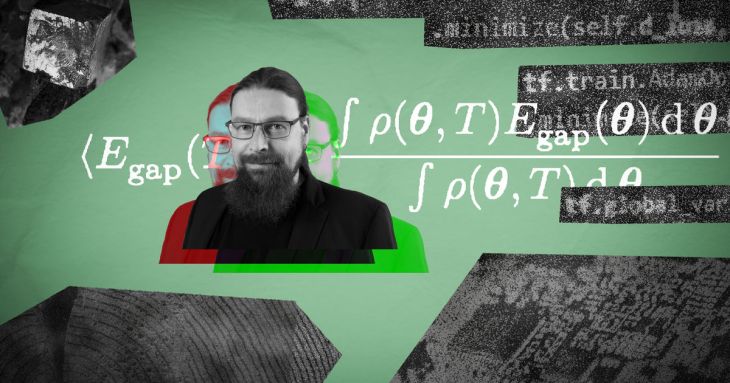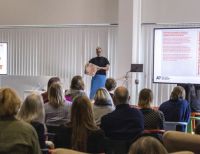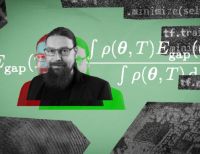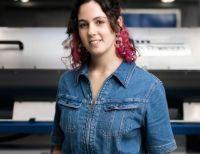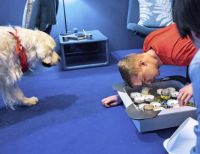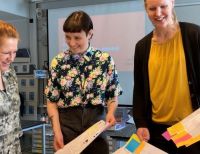For nearly ten years, Professor Patrick Rinke of the Department of Applied Physics has been a pioneering presence in machine learning methodology in materials science. Rinke learned the ropes on the job, wrote algorithms and taught the methods already in 2016 when few had a clear idea what AI could do.
Since then, machine learning in materials science has become a global research trend. Rinke’s expertise in finding sustainable and climate-friendly material configurations has arguably never been more in demand.
A curious start
Patrick Rinke came to Aalto in 2014 with a background in computational physics and quantum mechanics. For much of his academic career, from Germany to the UK to the US, he has modeled the complex behavior found at the atomic level with computational tools.
'In high school, I was good at math, physics, and computer science. But I couldn't decide what I wanted to study at university. I thought math was too hard, and computer science too new. Ultimately, I did a physics degree while veering towards computational physics, which combined all three things I was good at,' Rinke says.
Already in 2014—a decade before ChatGPT made AI ubiquitous—Rinke was curious about machine learning. He found equally curious partners at Aalto, and together they experimented with AI and machine learning in a physics context.
‘When I started as a professor, almost nobody in Finland was developing this kind of machine learning methodology in physics. The people who hired me at Aalto were just as interested as I was as to whether it would work,’ Rinke says.
And work it did. Recently promoted to full professorship at Aalto, Rinke heads the Computational Electronic Structure and Theory (CEST) group who apply machine learning methodology of their own devising to advance materials science and help scientists from across disciplines to take their work to the next level.

